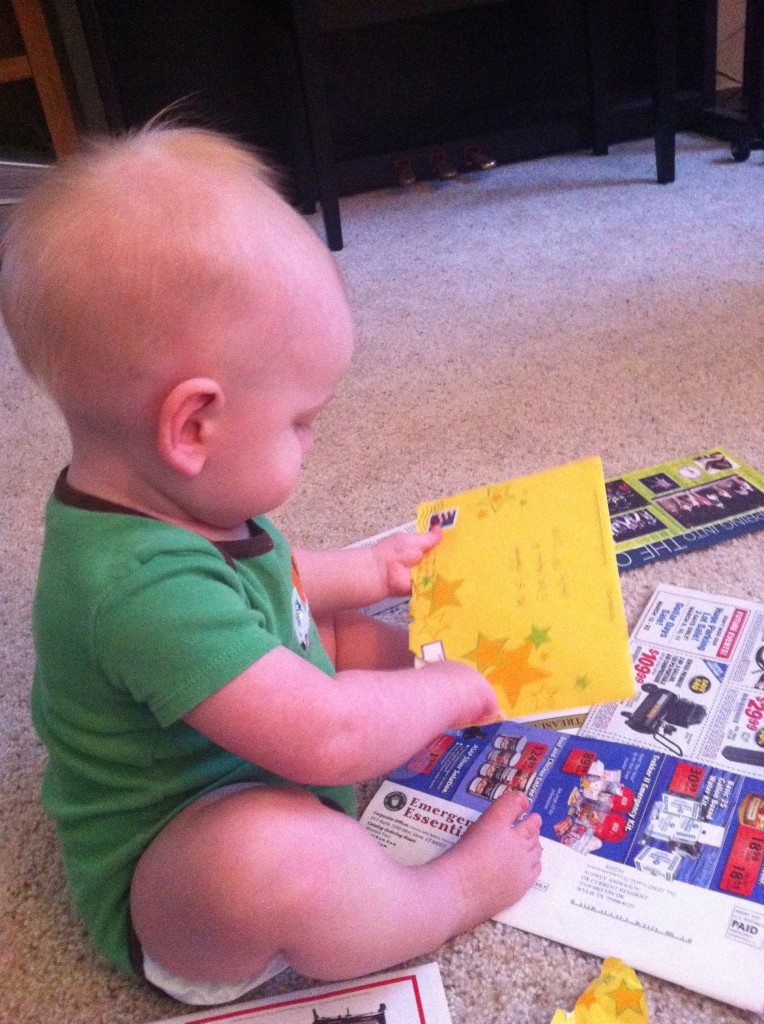The other day, my wife asked me whether I was going to join the “Mormon Liberals” group she stumbles across on Facebook. I looked at her and said, “I’m not a liberal.” Then she looked at me and said, “Yes, you are.”
And I was at a loss for words.
They say your wife knows you better than you know yourself, but I didn’t think this was the case.
Let me be clear. In college, I used to be a Hannity-listening, O’Reilly Factor-watching conservative. I particularly liked Hannity’s sharpness on the air. My family are all conservatives. But for most of the last decade, I’ve becomes more and more of a moderate or independent. I can’t stand the openly partisan news channels (fox and msnbc) anymore, and in political discourse, I find myself as the guy poking holes in people’s platitudes, rather than spouting them myself.
But then, this morning, someone posted the following comment on Facebook, in response to Mitt Romney’s latest gaffes. They put forward this list of “true conservative” values, and as I read it I couldn’t help but ask myself: “Wow. I identify with very little of this… maybe I really am a liberal?”
Ronald Reagan, the 40th President of the United States, is the epitome of American conservatism according to some. Specifically, conservatives seek or support: Limited government and balanced budgets, Capitalism and free markets, Classroom prayer, Respect for human life and prohibition of abortion, Abstinence education, Traditional marriage, not same-sex marriage, The concept of retribution for crimes, including the death penalty for heinous murders proven beyond reasonable doubt, Family values, including traditional relationships and division of labor within the household, Respect for differences between men and women, boys and girls, Laws against pornography, The Second Amendment right to keep and bear arms,Economic allocative efficiency (as opposed to popular equity),Parental control of education (parental rights),Private medical care and retirement plans,Canceling failed social support programs,No world government,Enforcement of current laws regarding immigrationRespect for our military … past and present,Rejection of junk science such as evolution and global warming,Minimal taxation,Federalism (Separation of powers among the National, State and Local governments),Favoring states’ rights over federal power, while accepting the Constitutional role of the federal government,A strong national defense,An Originalist interpretation of the Constitution,A dedication to the truth, and an ability to seek it
(First, I have to just interject that Ronald Reagan and many of his contemporaries, including Chief Justice Warren Berger, were NOT originalists, which kind of casts into doubt the intellectual honesty of this entire list… but even so, I’ll bite…)
Here’s my take on these. I still hold that I’m a moderate and an independent. But maybe I am a liberal? I dunno, you decide. You can argue with me on stuff you think I’m wrong, agree with me when you think I’m right, or just ignore it completely. Whatever. I’ve tried to be succinct, but I realize it’s kinda long…
Limited government and balanced budgets
Check. I like this. Government by the people and for the people. But I also think it’s impractical to think that our government will never run a deficit. Especially in light of the recent financial crisis, where government becomes the last man standing – the only entity who can spend. I think balanced budgets should be MORE the norm than they are, and I think we should build a rainy day fund rather than giving tax revenues back as tax cuts. I think the Bush tax cuts were (and continue to be) a travesty.
Capitalism and free markets
Check. I like them. I think they need to be regulated, generally, because there are a lot of dishonest people out there, and we need recourse to protect ourselves against them.
Classroom prayer
I have nothing against prayer. In fact, I strongly endorse prayer. But I endorse it as a private action which is best employed with people who share your belief in deity. I feel that, in a pluralistic society, there is little virtue in mass school prayer, unless it involves representation from all religions present – and then it just becomes cumbersome and tedious. Let each pray how they will. As long as there are tests in school, there will be prayer in school.
Respect for human life and prohibition of abortion
Absolutely! I also believe in a doctor’s ability to care for her patient. Sadly, I think doctors are viewed as customer service agents rather than respected medical professionals, who focus more on giving patients what they want instead of what they really need. Due to this reality, I support government banned abortions. In a better world, I’d be much more of a libertarian on this front.
Abstinence education
I’m cool with abstinence, but I don’t support sex education that denies the existence of sex, or that people will have sex sometime in their life. I see nothing wrong with full, honest sex education that discusses contraception, sexually transmitted disease, respect for our own and each other’s bodies, and gender perspectives on sexuality. I think that if we de-mystify sex, we better equip teenagers and young adults to be abstinent if they so choose, because there is less impetus to experience something they don’t yet understand.
Traditional marriage, not same-sex marriage
I’m a huge fan of marriage. I love mine. I think if heterosexuals spent just as much time and energy taking their own marriage seriously and defending it from their own tendency to sabotage it, and a little less time defending it from homosexuals, we’d see a lower divorce rate overall.
The concept of retribution for crimes, including the death penalty for heinous murders proven beyond reasonable doubt
This one, I cannot get behind. I can’t see why the party who is so attached to the sanctity of life for the unborn so readily accepts the responsibility to judge who should live or die after they commit a crime. Take a look at the innocence project, and other statistics and perspectives on our incarceration system (falsely called a correctional system). I do not and will not co-opt God’s right to choose when and how a soul will leave this world.
Family values, including traditional relationships and division of labor within the household
So, I’m not sure exactly what the punctuation means here. Does “traditional” modify both “relationships” and “division of labor”? If what this is trying to say is that men should take a brief case to work and women should cook and clean, then I heartily disagree and think it’s foolish to put in a political party identity something that automatically disqualifies more than half of today’s working parents. I have much more to say on this, but I think I said it best in my this recent post.
Respect for differences between men and women, boys and girls
I have no idea what this means. “Boys have penises and girls have vaginas.” That’s from “Kindergarten Cop”, which, I think, qualified as all the sex ed I got until 7th grade.
Laws against pornography
So, in other words, first amendment rights only apply to the things you want to hear/say? Gotcha. Obviously, this is a non-starter. Hey, it’s a pretty disgusting thing, so I say tax the daylights out of it.
The Second Amendment right to keep and bear arms
I’m cool with guns. I like to shoot them, and I think people should be able to own them. I really doubt I would be able to shoot someone, though. What I don’t get, though, is that it takes a more extensive process of background/credit checking to buy a cell phone contract than it does to buy a gun.
Economic allocative efficiency (as opposed to popular equity)
So, this is the belief that the market should be left on its own to create or destroy products and services. So, I generally agree with this, except I acknowledge government’s role in taxing (or choosing not to tax) some up-and-coming industries to give them a leg up, especially those who are pursuing scientific advancement that would benefit the whole nation. Much of the scientific achievement of the 20th century was accelerated because of government either fueling the fire or getting out of the way. The trick is having the wisdom to know which track should be followed.
Parental control of education (parental rights)
I think parents should take an active role in their child’s education. I don’t think parents should to take their children out of school because they hear or teach something they don’t agree with. Part of being educated in a pluralistic society is that we get to hear viewpoints that we disagree with, and the way we make that society civil is by educating our young people on how to deal with those we do not agree or get along with. This nation has a rich history of public education. In fact, I believe public education has been the biggest achievement of our nation. It is the great springboard from which every child, even the most impoverished, can springboard themselves into a life of achievement.
Private medical care and retirement plans
Yep. I’m definitely for these as well. I’m also for a social safety net that catches those members of our society who are poor, disabled, and who may – in some cases – literally die if we didn’t have some kind of system of social medicine and pension. I don’t think our social security system should be viewed as a cadillac retirement plan, but I think it can and should be taken advantage of as a least common denominator – a safety cushion that supports all the investing and other retirement activities going on in a normal middle or upper income individual’s life.
Canceling failed social support programs
I’m all for getting rid of programs that spend too much on a few. I’m all for making welfare a way to help people become independent and self-reliant. But I’m not OK with the wealthiest nation on earth standing by while hundreds of thousands of its citizens go hungry and shelterless.
No world government
Yes, but it’s nice to have a forum where America can bully other nations I mean, where we can work out diplomatic relations with other countries and broker solutions to the world’s problems.
Enforcement of current laws regarding immigration
I’m OK with that, but can we also have an immigration policy that makes sense, taking into account the economic realities of our country? We need guest farm workers. That’s good for farm business. We need highly-educated engineers and technologists from all over the world. Why do we hassle them so much about getting in? Let’s make an immigration policy that makes sense and acknowledges that we are all immigrants to this nation.
Respect for our military … past and present
Check.
Rejection of junk science such as evolution and global warming
Since science is the pursuit of truth (which you say down below you highly value), why get so judgey on an institution that’s just trying to do its best with the data it is observing. Rather than squashing it and viewing it as a threat to your religious beliefs or economic interests, why don’t you appreciate the dedicated human beings who are trying to explain the phenomenon they are studying? There is room for faith and science together, and if the USA was tiny island country in the middle of the ocean who was losing its very land to rising sea levels, you bet we’d be a little more concerned about it and not call those who were trying to explain it “junk scientists”.
Minimal taxation
Hey, I’m all for less taxation, but I’m also for responsible government. If we make a commitment, then we need to tax at the level that will fulfill that commitment. Nothing nauseates me more than Republicans who stump on preserving social security and Medicare benefits for seniors (to capture their vote) but then who destroy the very funding sources for those programs.
Oh, and I hate Grover Norquist. I think our founders turn over in their graves every time another legislator puts their votes in his hands.
Federalism (Separation of powers among the National, State and Local governments)
Since that is, like, a bedrock principle of the founding of our nation, I have to say I’m 100% on board with that.
Favoring states’ rights over federal power, while accepting the Constitutional role of the federal government
This goes back to the previous one. I’m not sure either one should be “favored”. I think if you read the Constitution (and associated amendments), this ball keeps getting hit back and forth. And I think that’s how it should be. In good Federalism, there should be constant give-and-take between state government and federal government.
A strong national defense
Check. But c’mon. Let’s be reasonable about it, too. We have more nuclear weapons than the rest of the world, combined. I’d rather have modern defenses. Stuxnet represents the new kind of warfare, and we need to be on the front line of that war, not seeing who can make a faster airplane.
An Originalist interpretation of the Constitution
I throw up a little in my throat, because I find originalism intellectually dishonest. Originalism wants you to suppose that you can know what the Framers had in mind when writing the constitution. But you can’t. All you can do is look at the 18th century through your 21st century lens. I don’t care if you wear a powdered wig or not.
A dedication to the truth, and an ability to seek it
Well, this is just too nebulous to waste time talking about, unless I just don’t get it.





 * Gosh I love Ron Popeil!
* Gosh I love Ron Popeil!





